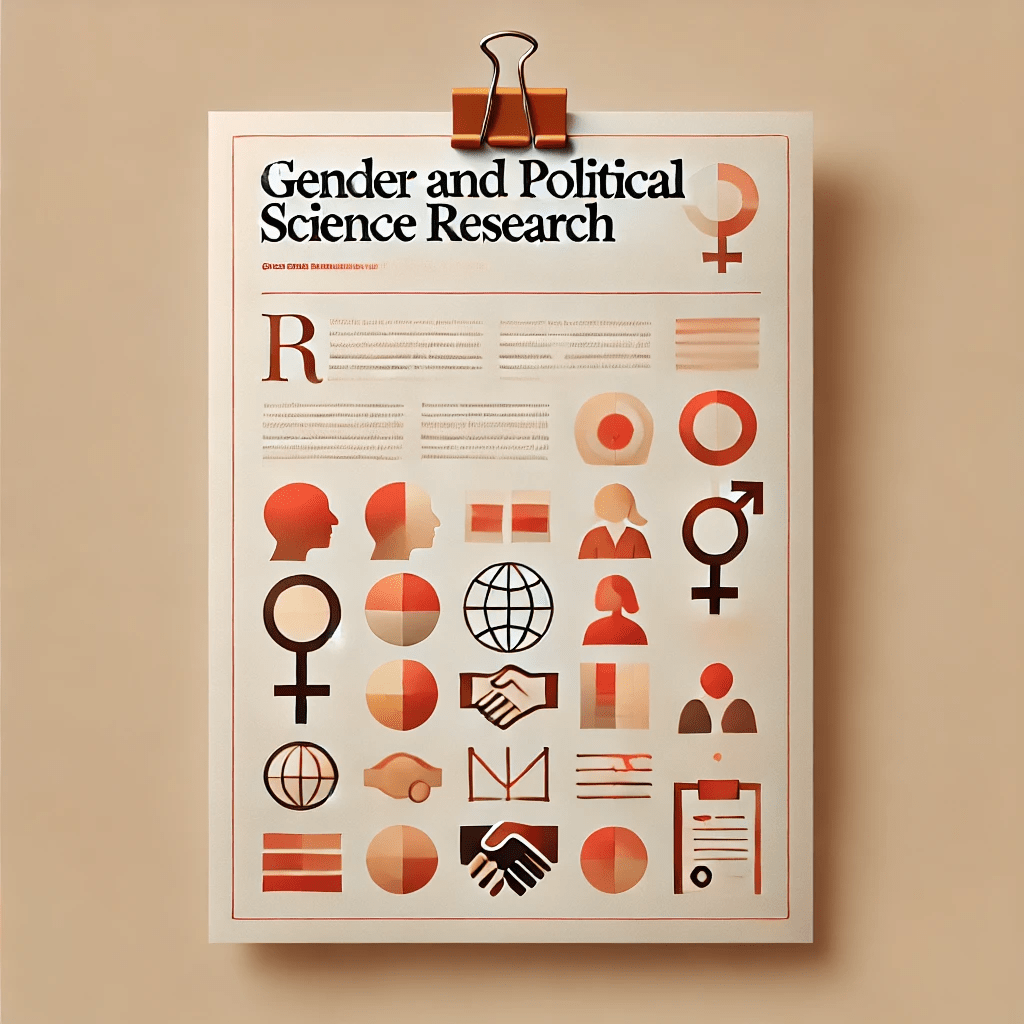In the ever-evolving landscape of political science, the intersection of gender and politics is proving to be a dynamic and urgent area of research. Gender remains a powerful lens through which we can better understand power structures and societal dynamics. However, engaging with issues such as gender-based violence or anti-gender politics can prove to be frustrating and disillusioning, as sensitive aspects are often overlooked or marginalized in mainstream political discourse.
Driven by the desire to explore the importance of gender issues in political science, we – two MA students at Humboldt-Universität zu Berlin – took part in a course taught by Dominika Tronina at the Institute of Social Sciences during the summer semester of 2024. The course titled “Gender and Political Science Research” was mainly attended by master’s students from the fields of social sciences and gender studies, as well as students attending via other programs (e.g., by Erasmus students or those taking it as a compulsory elective). While primarily focusing on empirical political science research, the course covered a wide range of topics including the value of gender quotas, equal political representation in policymaking, the influence of gender on political attitudes, and the role of gender in far-right voting. Additionally, it delved into LGBTQI+ politics and the issues from contemporary queer studies and methodologies. The students also engaged with feminist foreign policy, notably on the pressing example of the Russian invasion of Ukraine and the challenges that come with research on current geopolitical events.
The idea behind the course was to create an innovative learning environment, one that encourages active student participation, moving past the traditional roles of lecturer and student to foster a reading group atmosphere. The following article outlines the outcomes of the alternative approach and briefly describes the topics tackled during the seminars.
Course Structure and Content
Rather than analyzing the aforementioned topics themselves, Dominika Tronina’s course focused on the way social sciences can successfully approach topics of gender and politics. It therefore started with theoretical works by Kantola & Lombardo (2017) and Crenshaw (1989), which focus on issues of feminist research, and the strengths and limitations of feminist approaches to social analysis, including the concept of intersectionality in research and the critique of power relations within political science. This first half of the course provided a strong theoretical framework for what followed, which concentrated more on empirical studies.
The second half of Gender and Political Science Research was enriched by guest lecturers, who brought in a great deal of expertise from their respective fields. Dr. Joana Hofstetter, a postdoctoral researcher at the Faculty of Political and Social Sciences of the Scuola Normale Superiore in Florence, Italy, gave a lecture on sex worker movements in Germany and presented her own challenging research experience in a rather repressed field. Fátima Ávila Acosta, a doctoral researcher at Humboldt-Universität zu Berlin, gave an absorbing presentation on gender violence and, most notably, violence against women in politics. Among other things, she pointed out that political spaces were often not designed with women in mind. This can, for example, be seen in the lack of women’s toilets in government offices, which at first seems like a funny anecdote from the far-away past, but actually is not much of a fun fact at all, given that the US House of Representatives opened their first women’s restroom in 2011 and the US Senate in 1993. Violeta Haas, PhD Candidate in Political Science at DYNAMICS, Humboldt-Universität zu Berlin, held a presentation on the electoral consequences of political homophobia. She discussed how state-sponsored homophobia, particularly anti-LGBTQ resolutions in Poland, increased support for the ruling Law and Justice party (PiS), showcasing how illiberal elites use gender and sexuality issues to bolster electoral gains.
Voices from the Seminar
The seminar allowed the students to engage with the issues encountered in research and to rethink their conceptions of research approaches, ethics and methodologies. This was especially enabled by real-world insights and the lively dialogue with the aforementioned guests. For instance, Hofstetter (2022) shed light on the ethical and methodological challenges of qualitatively studying sex worker movements within the context of restrictive laws like Germany’s Prostituiertenschutzgesetz, emphasizing the importance of political self-organization in resisting feelings of powerlessness. Additionally, Paternotte’s (2018) overview the study of LGBT politics in Europe encouraged students to engage critically with the evolution of political science as a discipline, sparking a discussion about the need for greater visibility and academic rigor in addressing LGBTQI+ issues.
The students thus played an active role in shaping the course, with the syllabus serving only as a guideline. Each week, a group of students held the presentation and discussion, with Dominika Tronina there as both a moderator and a participant. The students were also asked to prepare a short video resembling a TikTok that deals with a topic related to the week’s texts, which fostered creativity and engagement. The atmosphere was therefore a very open one, with fruitful and respectful discussions taking place each session.
Looking back, the course covered a well-selected assortment of topics in the field of feminist research and gender and queer studies. One result of the seminar was two posts for the ZtG’s Genderblog: Between Theory and Practice: Feminist Research as a Reform of Current Academia and Die unsichtbare Gefahr der Demokratie: Cybermobbing Gegen Politikerinnen. These articles, written by seminar participants, present individual interests within the topics of gender and political science research.
Marlen Drewitz is currently studying Social Sciences for her master’s degree at Humboldt-Universität zu Berlin. She completed her bachelor’s there in 2022 with a thesis on the intersectionality of gender and migration background in formal volunteer work. Her interest in gender inequality continues outside of the university in her job at the German Centre for Gerontology. Both there and in her studies, she focuses primarily on quantitative social research.
Iva Kuljača is studying for an MA in Social Sciences at the Humboldt-Universität zu Berlin, after completing her bachelor’s at the same institute in 2023. Her BA thesis covered language ideologies and their ties to nationalism in the Western Balkans. She has been a student assistant at the chair for Comparative Politics and the Political Systems of Eastern Europe since May 2021.

